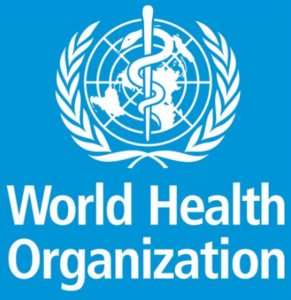The WHO and the Quest for Global Governance: A Deep Dive into the Controversy

The World Health Organization (WHO) is often viewed through a lens of authority when it comes to public health, but recent developments have sparked intense debate about its overarching influence and motives. At Extreme Investor Network, we aim to provide insight that goes beyond the traditional narratives. Let’s delve deeper into the WHO’s evolving role in global governance and its implications for national sovereignty.
The WHO’s Expanding Reach
The WHO has gained notoriety as an unaccountable entity, where members are not elected but rather appointed. This raises a significant concern: who is truly guiding the course of health policies, and for whose benefit? Until now, many have overlooked the alarming proposition that the organization might serve as a vehicle for a "One World Government" under the guise of health initiatives. Could there be an ulterior motive behind its strategic push for expanded authority?
In April 2022, the WHO proposed revisions to its regulations, seeking to grant itself unprecedented powers in health emergencies. The troubling reality is this: if a health emergency is announced (a power that rests solely in its director-general’s hands), the organization could impose regulations that effectively bypass traditional democratic processes. This means that a simple majority of the 194 member states could grant the WHO’s director-general dictatorial powers in times of crisis, alarming many who value national sovereignty.
America’s Relationship with the WHO: A Political Tug of War
The funding saga of the WHO provides a glimpse into the political maneuvering surrounding this organization. President Ronald Reagan famously defunded the WHO, and Donald Trump followed suit, calling it a “corrupt globalist scam” controlled by influences like China. Yet, upon rejoining the WHO under President Biden, the United States resumed hefty payments—approximately $500 million annually—far outpacing contributions from other nations, including China, which pays significantly less.
Trump’s promise to extricate the U.S. from this controversial alliance resonated with many who feel that public health initiatives are being weaponized to facilitate global governance. In a world increasingly driven by interconnectedness, the implications of WHO policies can reverberate across national borders—affecting everything from economic stability to individual liberties.
Who’s Really in Charge? The Bill Gates Paradox
Adding another layer of complexity, the specter of influential private interests looms large, particularly when it comes to individuals like Bill Gates. His alleged collaboration with the WHO raises eyebrows, especially amid conversations about global health and development. Recently, Trump noted that Gates requested a meeting at Mar-a-Lago, sparking speculation about potential allegiances and intentions beneath the surface.
At Extreme Investor Network, we believe that transparency is critical. The role of private individuals and foundations in shaping public health policy must be scrutinized, especially when their interests may not align with the masses. The question remains: Are organizations like the WHO operating independently, or are they beholden to external influences?
The Road Ahead: What’s Next for Global Health Policy?
As debates continue over the WHO’s authority and its potential to infringe upon U.S. sovereignty, it is crucial for citizens to remain informed. Proposals made at such a high level should be met with thorough public debate and scrutiny. What is at stake is not just a shift in public health policy but a potential reconfiguration of global governance structures that may reshape our democratic processes.
At Extreme Investor Network, we advocate for a robust dialogue around these issues. We urge our readers to question the established narratives, engage in discussions about public health policies, and remain vigilant regarding the influences shaping our world. With informed citizens, we can ensure that health remains a priority, not a pretext for expanding unchecked power.
Let us know your thoughts, and join the conversation as we continue to explore the intersection of health, governance, and global economics. Together, we can navigate the complexities of today’s world for a better tomorrow.

